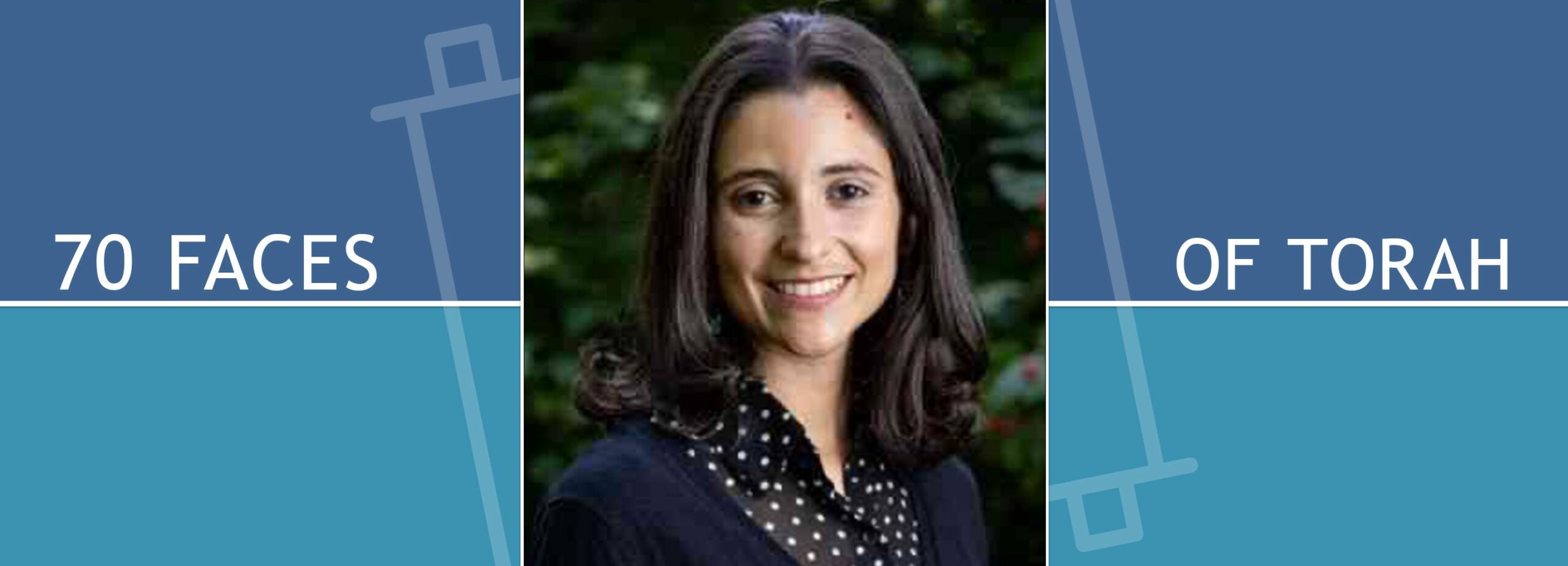Genesis On That Very Day

Parashat Toldot Genesis 25:19-28:9
“On that very day that Abraham our forefather passed away, Jacob our forefather prepared a lentil stew to comfort Isaac, his father” (Bava Batra 16b). The Talmud tells us this important detail, which will set the scene for the famous exchange between Jocob and his brother Esau in Parshat Toldot. It’s not just any stew that Jacob is cooking when his hungry and weary brother Esau comes in from the field. Jacob is cooking lentils– ha’adom ha’adom hazeh, this red, red thing. The lentils are the first shiva meal for Isaac, who has just buried his father Abraham “on that very day.”
The Talmud goes on to explain that lentils are a traditional food cooked to comfort a mourner. A debate is presented as to why this is the right food for the occasion: Rabba bar Mari tells us that “Just as this lentil has no mouth, so too a mourner has no mouth.” The lentil is smooth, without a crack like other beans which reminds us that those in mourning are speechless, too stunned to say anything. Alternatively, a second opinion shares “just as this lentil is round, so too mourning comes around to all the inhabitants of the world.” The round lentil reminds us not of the circle of life, as we might have expected, but of the inevitability of death. This food symbolizes both the shock and finality of death. Even before there is any discussion of a birthright, these little legumes are laden with layers of meaning.
Knowing the purpose of this meal may help us understand the surprising exchange the brothers make: a bowl of stew for a birthright. How many siblings throughout history have found themselves fighting over their inheritance the moment the family patriarch passes away? While we know from elsewhere in the Torah that Isaac and Yishmael come together to bury their father Abraham, we learn here that the same moment drives Jacob and Esau apart. Both of these are responses we know from contemporary life, and may even have experienced, and they are both as old as the bible.
Rashi opens his commentary on the red, red stew by telling us that “On that day Abraham had died in order that he might not see his grandson Esau falling into degenerate ways” (Rashi on Gen 25:30). He brings this story from the Talmud not to teach us about family estrangement caused by fights over inheritance, but to tell us why Abraham died. Abraham died at 175, five years before his time was really up. Rather than living to 180 like Isaac, Abraham’s slightly premature death spares him the pain of seeing his grandson Esau become wicked. Instead of these extra years, he is granted “good old age” (Gen 25:8), which seems to be defined as dying with peace of mind.
What makes Esau so wicked? we might wonder when we read only the words of Genesis. The same Talmud page answers this question with a damning list of sins that were all apparently committed on this same day: “Rabbi Yoḥanan says: That wicked Esau committed five transgressions on that day: He engaged in sexual relations with a betrothed maiden, he killed a person, he denied the principle of God’s existence, he denied resurrection of the dead, and he despised the birthright.” Each of these sins comes with a proof text, a phrase or line from our Parsha describing Esau’s actions that day in the field or his conversation with Jacob that the Talmud will read (and perhaps manipulate a little bit) as evidence of a grave sin. Esau didn’t just make one mistake, he went fully bad.
With the Talmud and Rashi providing this elaborate backstory, we come to see this as a momentous day. This is not just a day when Jacob happened to be cooking stew. This is the day Abraham died. It is the day Isaac mourned. It is the day Esau sinned repeatedly. And it is the day Jacob purchased his brother’s birthright.
This might sound farfetched, unrealistic, ridiculous even. But we indeed live in a world where we know a lot can change in a single day. The course of a family, and even the course of history can turn in one day. The midrash brings together so many different strands of this complex story and looks for how they intersect. These connections help us make sense, they help us learn. The stories of our Torah don’t happen in isolation, and neither do the events of our own lives. How can we bring this midrashic lens to our own lives and world? We cannot just move through the world from moment to moment, but must ask ourselves, what is happening today? How will the choices and actions of this day reverberate for generations to come?
Rabbi Avi Killip is the Executive Vice President at Hadar. A graduate of Hebrew College Rabbinical School, Avi serves as a Trustee of Hebrew College. She also holds Bachelors and Masters from Brandeis University. Avi teaches as part of Hadar’s Faculty and is host of Hadar’s podcasts, Responsa Radio and Ta Shma. You can reach her at [email protected].
Explore Graduate Programs Support Our Work Tamid Adult Learning Classes

